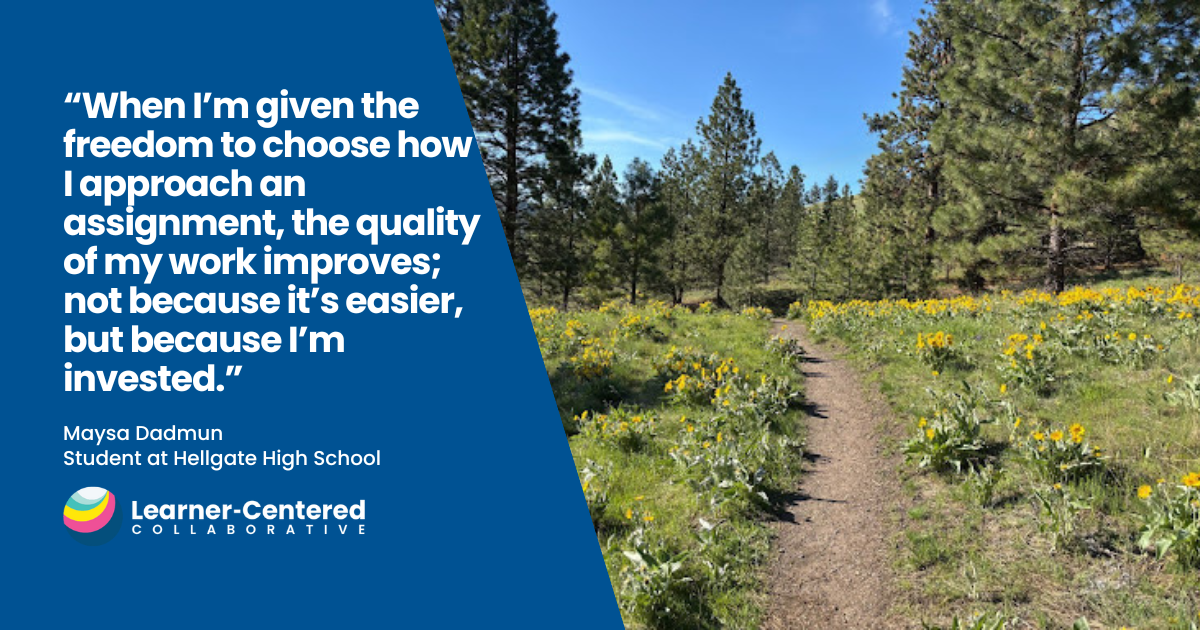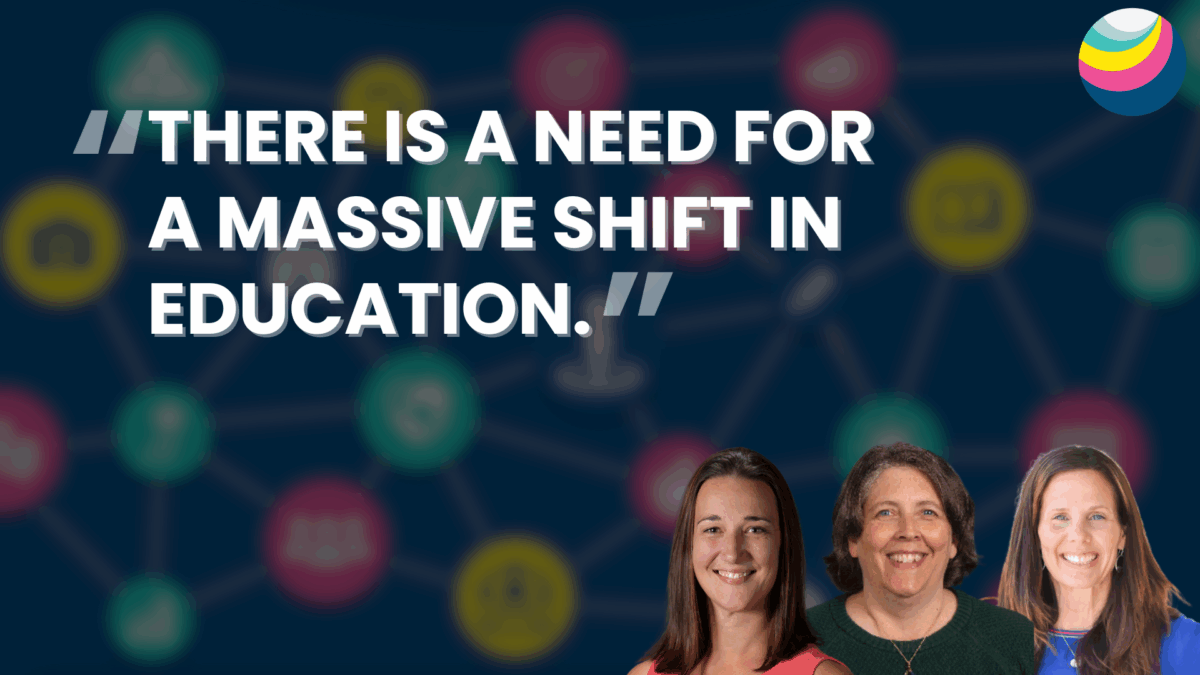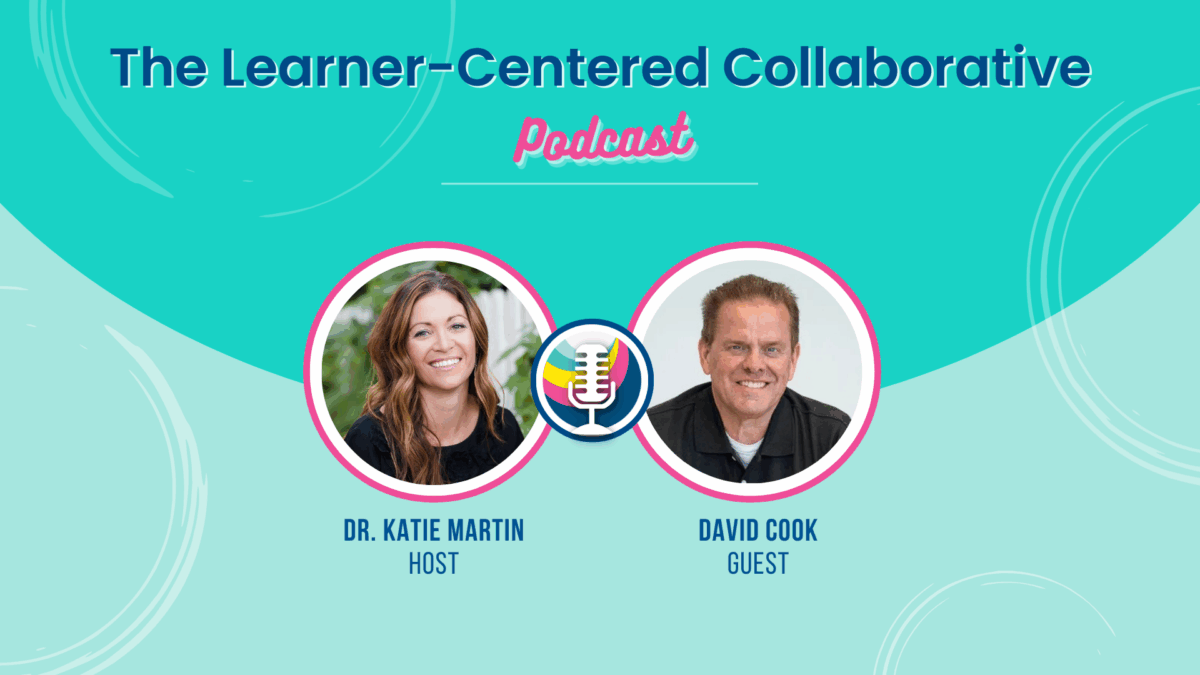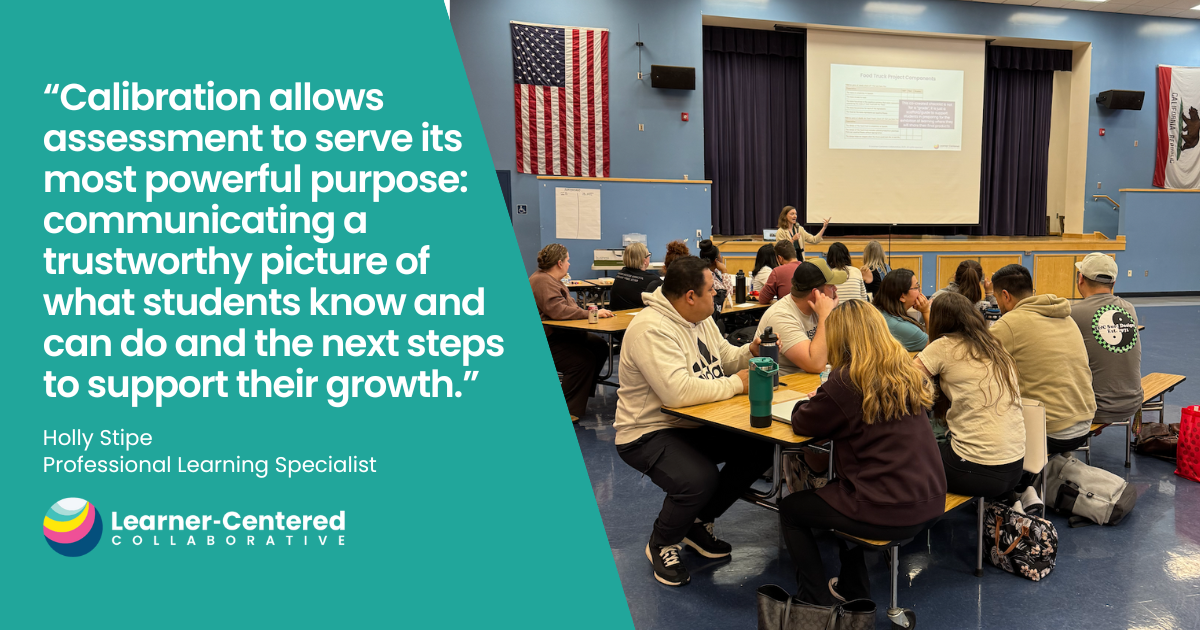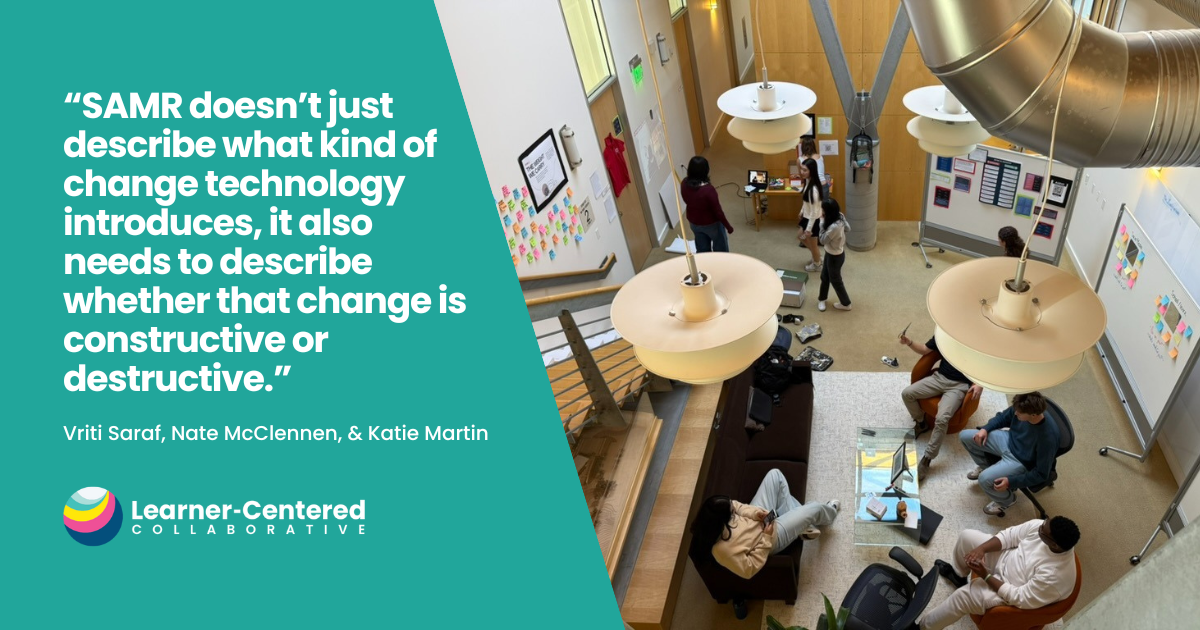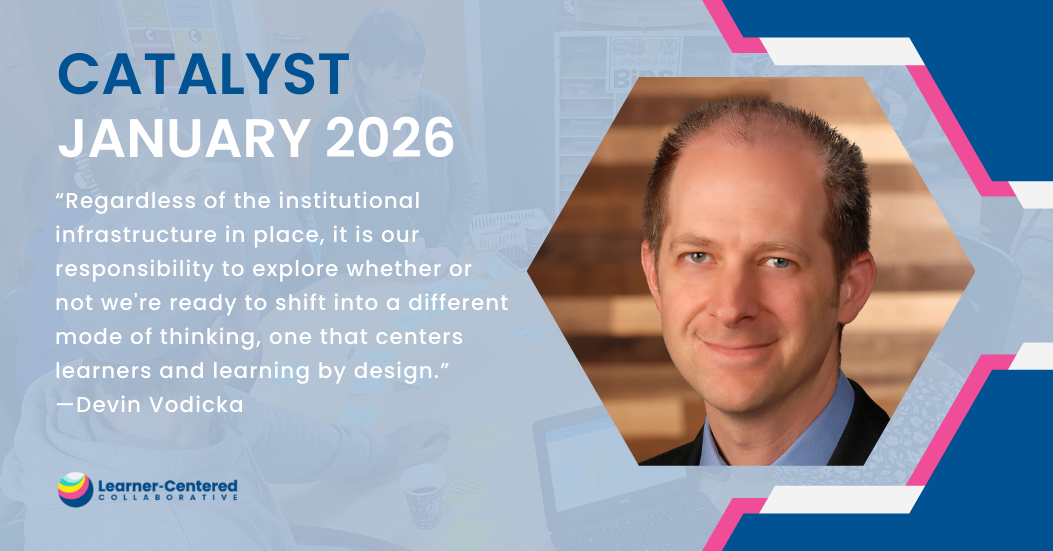Episode 28: Honoring Growth Over Time With Competency-Based Assessment With Bryanna Hanson
By loading this video, you agree to the privacy policy of Youtube.
Episode Summary:
Bryanna Hanson, Learner-Centered Collaborative’s Director of Learning Design, delves into her educational journey and her commitment to transforming assessment and grading practices. Bryanna’s teaching career began with enthusiasm but soon encountered the constraints of conventional grading and curriculum standards.
With a foundation rooted in a genuine passion for learning and an early realization of the limitations of traditional assessment methods, Bryanna’s path took a transformative turn when she found herself teaching Spanish at a competency-based micro-school. This experience steered her towards a learner-centered approach that emphasizes authentic learning experiences over teaching to the test.
During this episode, Bryanna and Katie discuss:
- 🇪🇸 Bryanna’s “aha” moment when studying abroad in Spain and seeing how acing Spanish class did not translate to real-world use.
- ⛓️ The limitations and inequities traditional grading and assessment create.
- 🌮 Lessons learned when doing competency-based assessment within the context of a student-run food truck.
- 🎯 Distinguishing between traditional, standards-based, and competency-based assessment practices.
- 🕓 The power of measuring growth over time and how competency-based assessment honors this goal.
Throughout the conversation, Bryanna reflects on the challenges and opportunities within the current educational landscape, advocating for a future where education is more aligned with fostering holistic development and preparing students for the complexities of the world they live in every day.
Related Resources:
- Strategy: Move On When Ready (Learner-Centered Collaborative)
Empower learners to progress through the learning experience based on their demonstration of the desired skills and knowledge. Discover real examples of this strategy from learner-centered environments across the country. - Plan With a Competency-Based Approach (Learner-Centered Collaborative).
This course will support educators in designing meaningful and aligned assessments that truly measure the desired learning outcomes, co-define success criteria through a variety of styles of rubrics with learners, and build in cycles of iteration. - Competency-Based Learning: Shifting from Grading Points to Assessing Learning (Bryanna Hanson).
Bryanna gives a deeper overview of competency-based assessment, focusing on three key shifts needed to bring this practice to life. Dive in to learn more about those key shifts and see what’s possible in your learning community.
How About Another?
